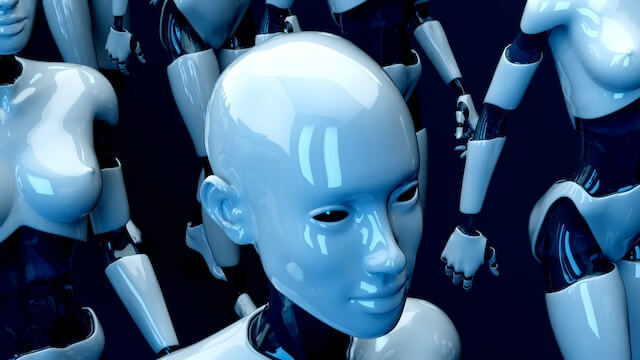Unlocking the Future: The Rise of AI-Powered Devices and Applications

Artificial Intelligence (AI) has emerged as a transformative force, revolutionizing the way we live, work, and interact with technology. At the heart of this technological revolution are AI-powered devices and applications, which leverage advanced algorithms and machine learning to augment human capabilities and enhance efficiency across various domains. This article explores the profound impact of AI on our daily lives, delving into the diverse array of AI-powered devices and applications that are shaping the present and future.
I. Understanding AI-Powered Devices
A. Definition and Core Principles
AI-powered devices refer to hardware that integrates artificial intelligence capabilities, enabling them to analyze data, learn from patterns, and make intelligent decisions. These devices rely on machine learning algorithms, neural networks, and deep learning techniques to perform tasks that traditionally required human intelligence.
B. Types of AI-Powered Devices
- Smartphones and Virtual Assistants: AI has become ubiquitous in smartphones, enhancing user experience through features like voice recognition, image recognition, and predictive text. Virtual assistants like Siri, Google Assistant, and Amazon’s Alexa exemplify the integration of AI into everyday devices.
- Smart Home Devices: The Internet of Things (IoT) has paved the way for AI-powered smart home devices, such as smart thermostats, cameras, and lights. These devices learn user preferences, adapt to routines, and contribute to energy efficiency.
- Wearables: Fitness trackers, smartwatches, and health monitoring devices utilize AI algorithms to analyze biometric data, provide personalized health insights, and track physical activities.
II. Applications of AI-Powered Devices
A. Healthcare
- Diagnostics and Imaging: AI-powered devices are revolutionizing medical diagnostics by analyzing medical images, detecting anomalies, and assisting healthcare professionals in diagnosing diseases at an early stage.
- Personalized Medicine: AI applications in genomics and pharmacogenomics contribute to personalized treatment plans based on an individual’s genetic makeup, optimizing therapeutic outcomes.
B. Finance
- Fraud Detection: AI algorithms analyze vast datasets to detect patterns indicative of fraudulent activities, enhancing the security of financial transactions.
- Algorithmic Trading: AI-powered applications in finance automate trading strategies, leveraging machine learning to analyze market trends and execute trades with speed and accuracy.
C. Education
- Adaptive Learning Systems: AI-powered educational tools tailor learning experiences to individual students, adapting content and pacing to optimize understanding and retention.
- Language Learning Apps: AI-driven language learning applications use natural language processing to provide personalized feedback, improving language acquisition for users.
III. Future Trends and Challenges
A. Emerging Technologies
- Edge AI: The shift towards edge computing allows AI algorithms to run on local devices, reducing latency and enabling real-time processing for applications like autonomous vehicles and smart cities.
- Quantum Computing: The development of quantum computing holds the potential to exponentially increase the processing power of AI, unlocking new possibilities in complex problem-solving.
B. Ethical Considerations and Challenges
- Bias in AI: Ensuring fairness and mitigating bias in AI algorithms remains a critical challenge, requiring ongoing efforts to address issues related to data bias and algorithmic transparency.
- Privacy Concerns: The widespread use of AI-powered devices raises concerns about the collection and misuse of personal data, necessitating robust privacy regulations and ethical guidelines.
Conclusion
AI-powered devices and applications are at the forefront of technological innovation, reshaping industries and transforming the way we engage with technology. As these technologies continue to evolve, it is essential to address ethical considerations, ensure transparency, and promote responsible AI development. The journey towards a future powered by AI holds immense promise, with the potential to solve complex problems, enhance human capabilities, and usher in a new era of innovation and progress.




